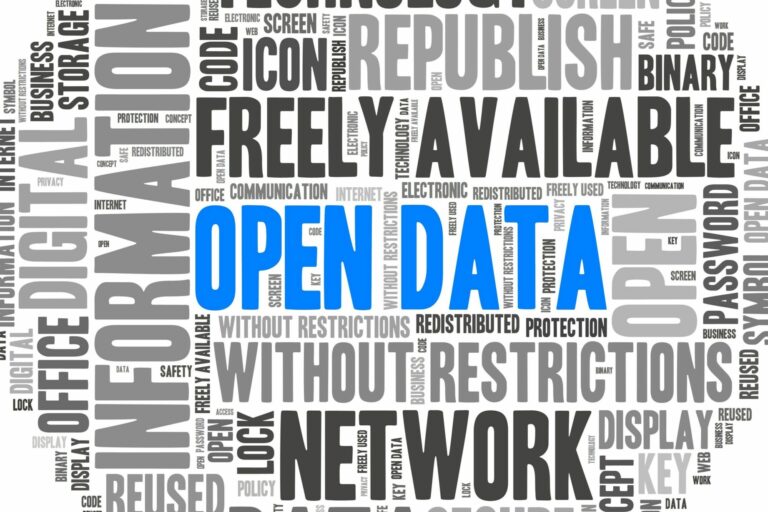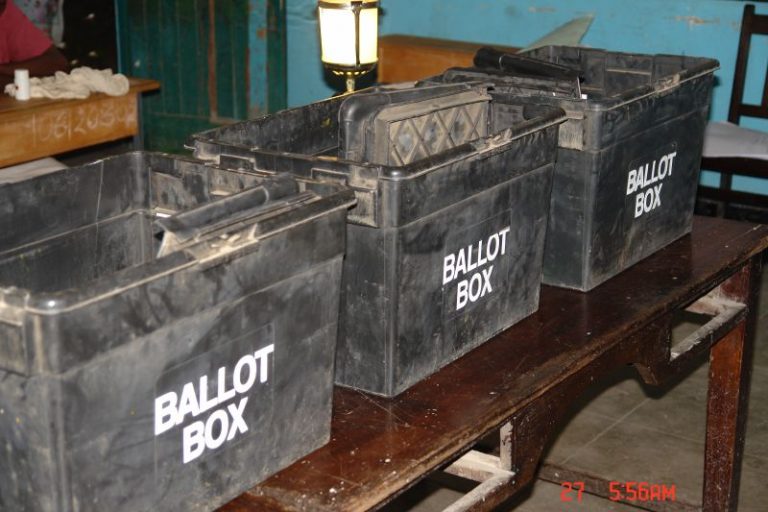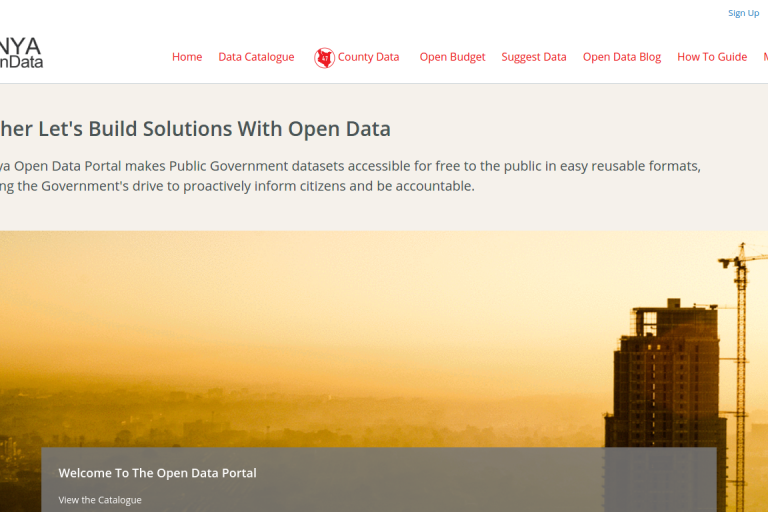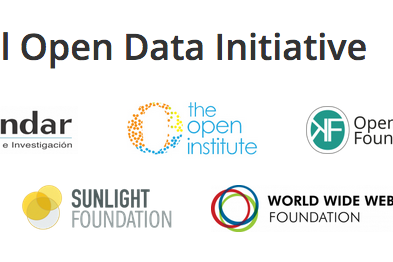Last Friday, Nandi County released the Nandi Data Desk Dashboard, which seeks to showcase the county’s data. This marks another milestone in the work we have been doing with them since we signed a Memorandum of Understanding to establish a data desk, which was launched in May this year. Acknowledging the partnership between the Open Institute and Nandi County, Governor Stephen Sang stressed the value of the data desk to the county. Through the dashboard, the general public has access to budget data, project data (including the location, cost and status of the project, and sector data from all ten sectors the county is concerned with.
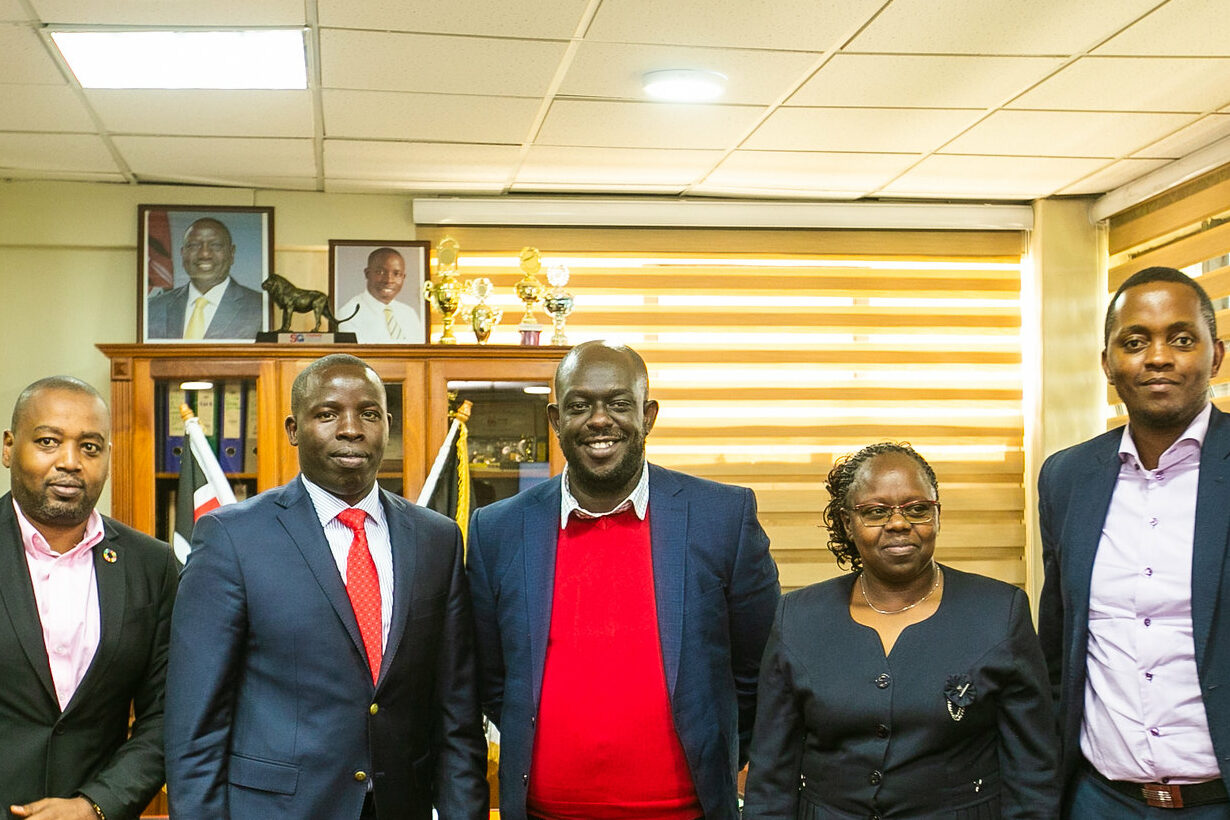
“We are happy because this dashboard brings us closer to being in a position to make decisions based on accurate and timely data. When we came in, we struggled to find accurate data to guide our work. We had to work hard to establish a strong team to help us structure and collect the data we are working with, together with the national government and partners such as OI.”
His Excellency Stephen Sang, Governor, Nandi County
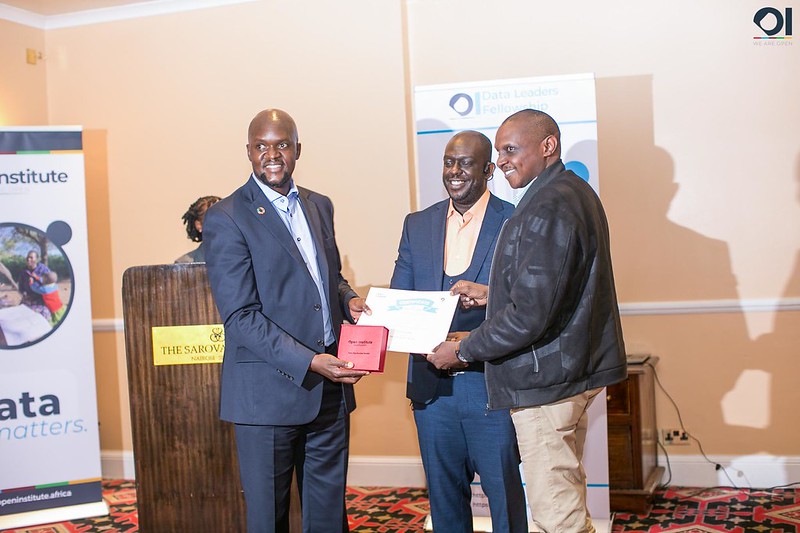
The making of a Data Desk
The process we have taken so far to develop the data desk has had four main stages. First, we had engagements with the county leadership in the executive (Governor, County Executive Committee Members (CECMs), Chief Officers and Director Level staff) and the county legislative arm. Our engagements sought to share the value of having a data desk in the county and demonstrate how open data could support strengthening the county’s governance. The Chief Officer in charge of Finance & Economic Planning is also an alumnus of the inaugural Data Leadership Fellowship Programme for Chief Officers, which we held at the beginning of the year.
LEFT: Mr. Felix Sambu, Chief Officer of Finance & Economic Planning, receives his Certificate for the Data Leadership Fellowship from Mr Davis Adieno.
Once we had buy-in from the county leadership, we went through a rigorous process of building the capacity of the technical level team – not just in the Finance & Economic Planning Department of the county, but also nominated team members from all other departments, who would be focal points to the data desk. Through a series of workshops and assignments, the team harmonised the indicators from their departments, curated data from all departments and then prepared it for uploading into the dashboard. At the end of that process, the data desk was fully established – led by the Lead Statistician of the county Ms. Mercy N. Kogo at the technical and the CECM for Finance and Economic Planning, Mr. Alfred Langat. Overall leadership was provided by the Deputy Governor, Her Excellency Yulita Mitei, who oversaw the process every step of the way. The Data Desk was launched officially at the county offices. It is at the launch that our founder, Al Kags was given the name Kiprop, meaning “bearer of good tidings”.
Political will is essential for the proper establishment of a data desk and Nandi showed it with the hands-on leadership of Her Excellency Yulita Mitei Cheruiyot.
The Open Institute team led the process of customising the Open County dashboard to fit the data and indicators available at the Data Desk. This is so that they can be used for decision-making by the County officials. The data will now be additionally useful to the public participation efforts by the county as they develop the County Integrated Development Plan (CIDP) for this term. So far, 162 datasets have been collected and processed from the 10 sectors, and 538 Projects have been uploaded to the dashboard.
Speaking with the county leadership during our courtesy call yesterday, Al Kags urged the county to continue to update the available data so that everyone is working on the most recent data. “Decisions are better made with data from yesterday or last week, than data from last year,” he said. “We shall be keen to continue supporting the data desk to curate real time data for real time action by the county government.”
We urged the team not to see the release of the datasets as an end but as a beginning of a new culture. Real-time data is important for the government to work even more effectively and to track all activities consistently. Technology enables us to achieve this, and we intend to continue to support the county until that vision of a consistent, proactive transparent county government is achieved.
Going forward, we shall continue to support the county to develop an ecosystem around the data desk including building the capacity of the local community based organisations and journalists to engage with the data. We are also keen to work with the county to incorporate data from other sources like citizen-generated data (potentially collected by the youth) and local organisations in the county.
The Nandi County government agreed to partner with us to explore establishing strong structures for data governance and protection. We have already worked closely with the Office of the Data Protection Commissioner. We think that Nandi County is best positioned to lead the way in having world-class data governance structures and processes. This would bring benefits for the county to increase the use of technology and encourage tech-based private sector investment, especially that supports agribusiness.

